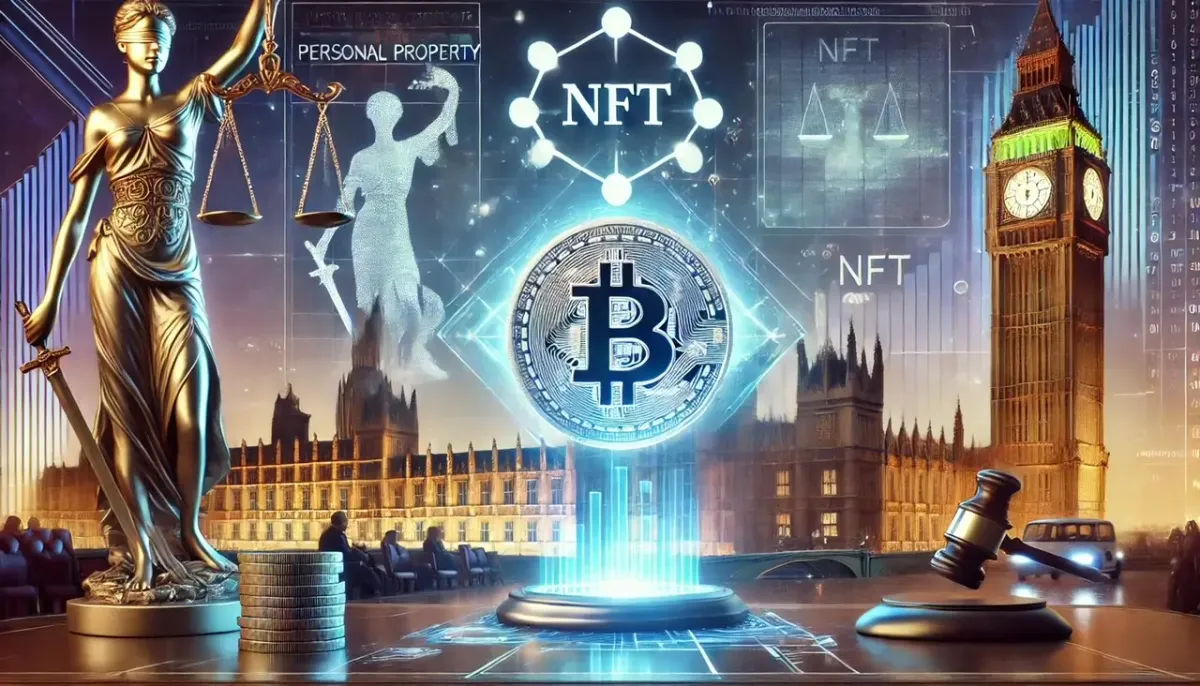UK Government Introduces Bill to Recognize Digital Assets as Personal Property

UK Bill to Clarify Legal Status of Cryptocurrency and Digital Assets
Introduction of the Bill
On September 11, 2024, the UK government took a significant step in the realm of financial legislation by introducing a bill to Parliament aimed at clarifying the legal status of digital assets. This bill marks a milestone in the recognition and regulation of digital and crypto assets within the UK legal framework, aiming to provide much-needed clarity and protection for asset owners.

Establishing Legal Status
The focal point of the proposed bill is to officially recognize digital assets — including cryptocurrencies like Bitcoin, non-fungible tokens (NFTs), and tokenized assets — as personal property under UK law. This development would introduce a new category of property that stands alongside the existing categories of things in possession (such as money and cars) and things in action (such as debts and shares).
New Property Category
The introduction of a new category of property is poised to reshape legal interpretations and applications regarding digital assets. This inclusion addresses the unique nature of these assets, ensuring they are acknowledged within the legal system, and bring them on par with traditional forms of property.
Enhanced Protection and Economic Impact
By classifying digital assets as personal property, the bill aims to offer robust legal protection for owners. This development is particularly crucial in safeguarding against fraud and scams, which have become increasingly prevalent in the digital asset landscape. Furthermore, it will provide clear guidelines for the legal profession, especially in cases involving ownership disputes, such as divorce proceedings.
The economic implications of this bill are also profound. The UK government anticipates that this legislation will enhance the nation's position as a global leader in the crypto asset sector. By offering legal certainty, the UK aims to attract more business and investment into its legal services sector, which already contributes a substantial £34 billion annually to the economy.
Maintaining Global Leadership
The decision to legally recognize digital assets is also a strategic move to sustain the UK’s international prestige in the legal arena. By being one of the first countries to enact such legislation, the UK aims to solidify its reputation and draw international mergers and acquisitions to be governed by English law, further boosting its influence and economic standing.
This legislation is not only a response to current needs but also a proactive measure to keep pace with technological evolution. The bill is designed to ensure the UK remains at the forefront of the global tech industry, adapting its legal frameworks to support and facilitate the growth of new technologies.
Recommendations and Official Statements
It is noteworthy that this legislation follows recommendations from the Law Commission — an advisory body that recommended the categorization of certain digital assets as being capable of attracting personal property rights under English and Welsh law. This alignment with expert advice underscores the bill's intention to provide a well-considered and robust foundation for digital asset regulation.
Justice Minister Heidi Alexander notably emphasized the broader implications of this legislation. She stated that the bill would not only drive economic growth but also reinforce the UK's position within the international legal industry by providing much-needed clarity and security for those holding digital assets. Her statement encapsulates the dual goals of the bill: economic fortification and international legal leadership.
In conclusion, the introduction of this bill represents a forward-thinking approach to the challenges and opportunities posed by digital and crypto assets. By providing a clear legal status and offering protection under the law, the UK is positioning itself as a pioneer in the rapidly evolving landscape of digital finance and technology.

